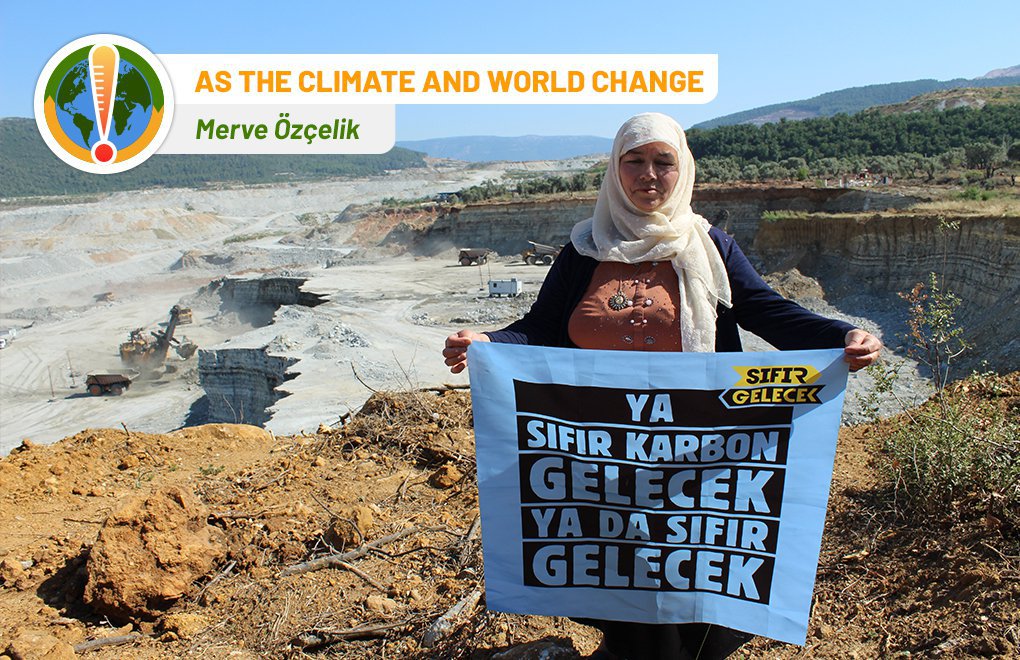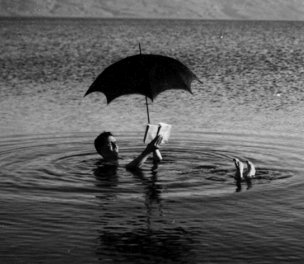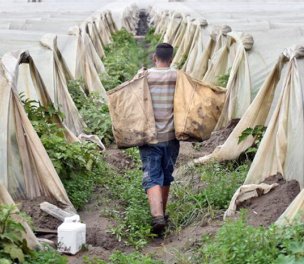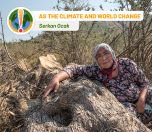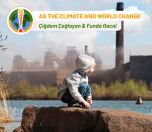Click to read the article in Turkish / Kurdish
While the destructive effects of the climate crisis have been experienced all over the world, women are among those most affected by this crisis.
The United Nations (UN) announced that 80 percent of the people displaced due to the climate crisis are women. According to the UN, women and children are 14 times more likely to die in climate-related disasters than men.
According to the report prepared by the Women's Environmental Network, an environmental organization based in the United Kingdom (UK), more than 10 thousand women die every year due to climate crisis.
Education, health and property rights
In some parts of the world, women have to end their education earlier than men. Therefore, they are less informed about the climate crisis and less involved in decision-making processes.
Especially in poor or developing countries, women's lack of access to education, health and property rights causes them to be more affected by the climate crisis.
It is valuable to keep in mind that one of the biggest reasons why the planet is driven to such extinction is patriarchy.
Why is women's mortality rate higher in disasters?
Spending more time to rescue their children and thus not finding time to survive, not being able to swim, taking care of the elderly, waiting for a man to leave the house, not being able to move comfortably due to their traditional clothes, not being able to run, the dominance of the regional culture on them, not being able to hear the warnings about disasters because of staying indoors due to their domestic responsibilities...
All of these factors explain to some extent why the mortality rate of women is higher during disasters.
Twenty million of the 28 million people who migrated due to the disasters caused by the climate crisis are women.
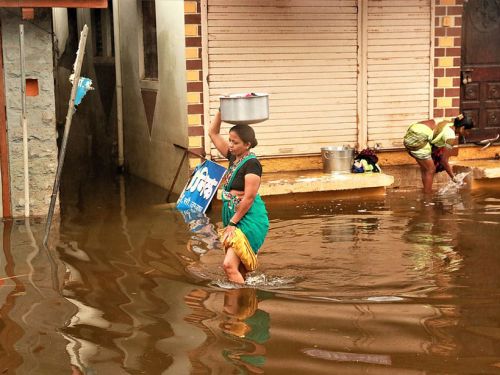
The danger prevails after the disaster
Moreover, even if women somehow survive the disasters, this time they face the threat of physical and sexual violence. Most women staying in shelters after the disaster are exposed to harassment, rape and violence.
According to the studies conducted in South Asia, women try to take shelter on the roofs of their houses or in trees during floods or storms due to rape, harassment and violence in shelter areas.
Girls Not Brides, an international nonprofit organization working to end child marriage, states that 12 million underage girls are forced to get married annually and disasters play a significant role in this high number.
Also, studies show that disasters increase the likelihood of women and girls to be forced into sex work in exchange for food and money.
Access to clean water is women's responsibility
Due to the decrease or depletion of water resources, we see that women are the most affected by access to clean water. Women and girls are responsible for water collection in eight out of the 10 households where water resources and access to water are limited.
Right now, women have to carry water to their homes from farther places. Women who have to walk six kilometers every day to access water may also be verbally or physically abused by men during their compulsory journey.
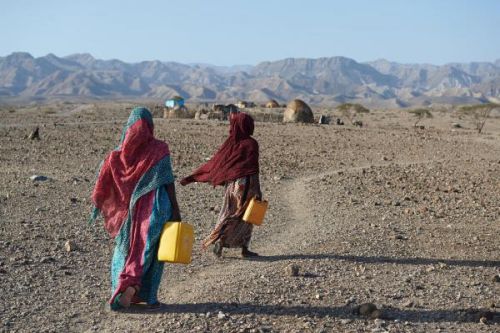
Credit: UNICEF
The impacts of food insecurity
Women and girls are most affected by food insecurity. In times of famine, girls are given less food than boys. It increases the likelihood of girls catching illness and leaves them vulnerable.
According to a study conducted by the International Union for Conservation of Nature (IUCN) last year, the rate of forced marriages of girls has increased in famine and hunger caused by climate disasters.
The World Health Organization (WHO) reports that more than 250 thousand deaths will occur annually due to malnutrition, air pollution and increasing water-borne diseases. Considering the current gender inequality, it is clear that most women will lose their lives under these conditions.
The decrease in food production
The decrease in agricultural production due to the climate crisis causes women to leave their places of residence or earn much less.
The rate of women working in the agricultural sector in Turkey is 28 percent. Moreover, 82 percent work without social security.
According to figures from Project Drawdown, women do 43 percent of the world's agricultural production. In cases where they have equal resources, women farmers produce 20-30 percent more.
However, women often do not have equal resources and few have a say in decision-making. Because most of the time, they do not own the land.
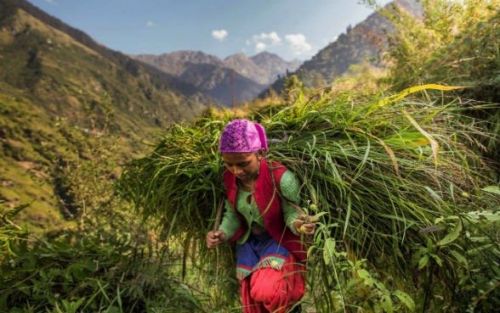
Climate crisis incites violence
In addition to all these, it is now a proven fact that the climate crisis has increased male violence. In places where women are responsible for agricultural production and when the product cannot be obtained in the desired amount due to unexpected climate disasters, it is seen that domestic violence increases.
There is also a correlation between sexual violence and climate disasters. Women living on the African coast are negatively affected by the decline in fish in the oceans and because fishers began to demand sex as well as money. According to research by IUCN, this system is quite common in western Kenya. It is called the Jaboya system.
Women struggle against the climate crisis
Although women are the ones who are most affected by the climate crisis, they are also the ones who stand up against the climate crisis. Two climate activist women told us about their struggle and how women are at the forefront of activism.
Özge Doruk, 27, from the Kazdağları (Mount Ida) Nature and Cultural Heritage Preservation Association, says she has been a climate activist for ten years.
Doruk told us that when she went to Çanakkale for her master's degree, she became involved in the local environmental movement. First as a researcher, then as an activist and now as a professional worker. Currently, Doruk works on a project based in Çanakkale and continues her activism in Kazdağları.
At the same time, she is the producer of the documentary called "A Power Plant Town- Çan". Doruk said that for her thesis, she conducted field research in Çırpılar Thermal Power Plant. She wanted to spread the story to a broader audience. "We will shoot similar documentaries," she said.
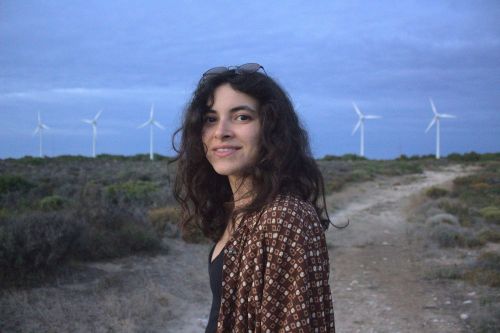
'Women struggle is much more faithful, stubborn'
Özge Doruk said that women face the climate crisis more severely. She mentioned that the Çanakkale region experiences water crisis stemming from climate change and women are more affected by this crisis:
"Since all roles such as washing dishes and cooking, which we call gender roles, are on them, they are directly affected when there is no water. It is much easier for men to leave in case of a crisis. Again, due to the roles attributed to them... They can walk away. But the household burden is placed on the woman. The responsibilities and obligations behind the care of the elderly and children do not make it possible for her to leave like that."
Doruk noted that she sees women in the climate struggle in a much more faithful and stubborn position. She is impressed by their courage and solidarity during the struggle and the sense of belonging to the place they are in. She said she gets strength from these features of women.
"Women are one of the groups that will be most affected by the climate crisis, but one of the communities we see at the forefront of the struggle," she said. Özge Doruk noted that she believes women union will gain meaning with this spirit in the future and will be effective in being more resilient.
From projects to activism
Deniz Gümüşel, a volunteer of İkizköy Environmental Committee, is actually an environmental engineer for 21 years. Gümüşel has been involved in many projects in which the effects of the energy sector on the climate crisis were investigated.
She has recently taken part in the Climate Action Network's study titled "The Real Cost of Coal" on the effects of thermal power plants on society, ecosystem and social life in Muğla province.
Deniz Gümüşel, who normally lives in Ankara, cannot leave Muğla, where she came for the project in 2017.
Around the same time the study was published, Akbelen Forest in İkizköy neighborhood in Milas district is intended to be destroyed to expand the lignite mine that supplies fuel to Yeniköy-Kemerköy power plants.
The people of İkizköy started a resistance by saying "We will no longer give our lands to coal". Deniz Gümüşel told us that they joined the resistance of the villagers.

"I don't remember how many reports I wrote or how many studies I was involved in in my life. But none of them worked that well. I have never experienced such an instructive process as the collective enlightenment we experienced here," she said.
Deniz Gümüşel also explained that black propaganda was made about her after she got involved in the struggle. She also shared that the local authority of the village gave interviews to the newspapers as "the malicious environmentalist Deniz Gümüşel" and various things are told about her to the people in the village, but the villagers did not reflect this situation to her.
'They are aware that it is a climate struggle'
While the resistance has been going on for two years, on July 17, 2021, the Forestry Directorate entered the area and killed 30 trees. That day, one of the villagers, Necla Işık, could not control her tears and said:
"I cannot breathe. While everyone was at work with animals, they came and started to take down the trees before anyone could intervene. We said so many times, 'stop it, do not cut it'. There is no human in front of us. There is a piece of stone. Please come to support.
"We need help. If this place goes, we are finished. It is not just İkizköy's problem anymore. It is the problem of the whole Turkey."
Noting that the villagers, who continue their resistance, are also aware that they are also fighting against the climate crisis, Gümüşel said:
"We were trying to express every time, as much as we could, that there is actually a struggle against a global crisis beyond the defense of local living space. That process was also a process for the villagers here.
"When we arrived, they were talking about the climate crisis, but now all the links have come together.
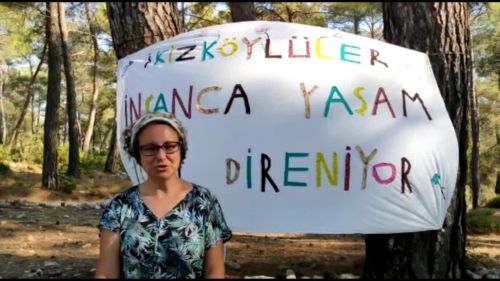
'Women are outspoken'
"The bravest, the most aggressive, most outspoken of the people we have been fighting together consist of women. Also, they are the ones who devote the most time to this work. There are men as well, but most of those who take this job willingly are women," she said.
Gümüşel attributed this to two things: Firstly, the main burden of agricultural production is on women. Secondly, women are still not alienated from nature.
The obstacles of being a woman
While women are struggling, they can be exposed to some troubles because of their gender. Gümüşel stated that she did not experience any difficulties as an activist in İkizköy resistance. But most of the time, she experienced problems in associations, platforms and urban organizations.
Gümüşel said, "I am a 46-year-old woman who has been an engineer for 21 years. It does not mean anything. If a man ten years younger than me said what I said, it is becoming more acceptable. You are struggling inside these structures to make yourself heard."
Similarly, Özge Doruk talked about the difficulties she faced in the struggle: "Not only being a woman but also your age is a factor. You are exposed to not being taken seriously by people inside and outside the movement. It always takes a little more scratching."
Whose story is being told?
Doruk is still in Çanakkale and describes her struggle as the following: "There is no such thing as giving up. We are going through the climate crisis right now and unfortunately, this is just the beginning. When faced with such a situation, I think it is necessary not to retreat but to go even further. I have more faith and conviction for myself than ever before."
Deniz Gümüşel is still in the resistance in Muğla and noted that she will continue to be there and did not neglect to say, "We will be here until the end".
It is a fact that the whole world should perceive it as essential to talk about gender equality when talking about the climate crisis. Countries that signed the Paris Climate Agreement were requested to take gender equality into account while taking measures against the climate crisis.
The UN Climate Change Gender Action Plan aims women's full and equal participation in the implementation of the UN climate change negotiation.
Although there are some steps taken to ensure gender equality in the fight against the climate crisis, their applicability and sincerity will be evident in the upcoming periods.
On the other hand, women are at the forefront of the climate struggle around the world. Some young women, such as Greta Thunberg, Licypriya Kangujam, Vanessa Nakate and Xiye Bastida, are leading the climate struggle.
And yet, it seems that women will continue to take the lead in the climate struggle both in Turkey and around the world. (MÖ/SO/EÜ/SD)
"As The Climate and World Change" article series*
Our life becomes history while we live! - Ömer Madra
1 / A country outside of the global climate policy: Turkey - Ebru Voyvoda
2 / Climate change, securitarian policies and ghosts - Özdeş Özbay
3 / Turkey's energy policy: Indigenous at home, Blue Homeland in the world - Emre İşeri
4 / The impact of climate crisis and fossil fuels on child health - Çiğdem Çağlayan & Funda Gacal
5 / We will see beautiful days, coal-free and sunny days - Elif Ünal
6 / Either capitalism or the future - Tuna Emren
7 / The three pillars of climate journalism: Science, politics, and social justice - Ece Baykal Fide
8 / Bringing science, struggle, and art together - Yasemin Ülgen
9 / Clean energy or betrayal? - Serkan Ocak
10 / It is time to say stop economic growth - Fikret Adaman & Gökçe Yeniev
11 / When climate refugees knock on our door - Mehmet Mücteba Göktaş
13 / Climate crisis affects women, women affect climate struggle - Merve Özçelik
14 / Climate fiction in literature- Buket Uzuner
15/ Dr. Faustus and children in the age of fire- Ömer Madra
* This series of articles is published with the financial support of Oslo Metropolitan University (OsloMet) Journalism & Media International Center.





